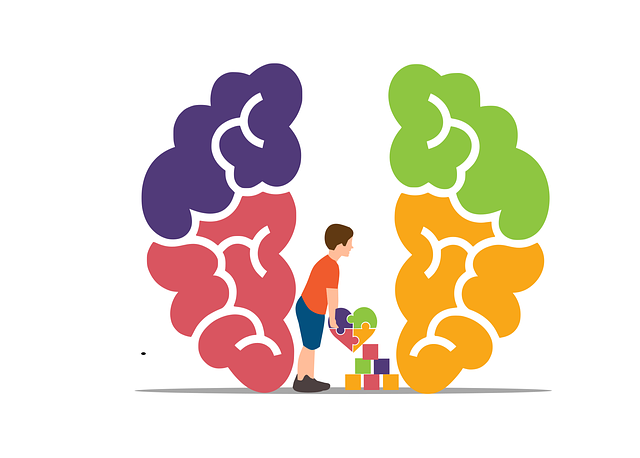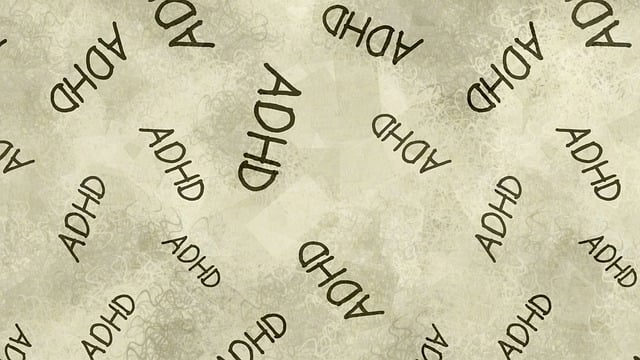Englewood's diverse neighborhoods pose unique challenges for community outreach, especially with regard to PTSD. Tailoring services to specific areas like older communities with high isolation rates through programs focusing on self-awareness and social skills can greatly enhance resident well-being. Engaging local leaders and understanding dynamics are crucial for effective outreach, like Englewood Post-Traumatic Stress Disorder Therapy initiatives. Art therapy and mindfulness meditation techniques show promise in helping residents process trauma and prevent healthcare provider burnout. Strategic partnerships with local organizations, engagement tracking, and feedback integration ensure program sustainability and accessibility, driving positive change and offering essential social skills training.
Engageville, a community grappling with elevated rates of Post-Traumatic Stress Disorder (PTSD), is ripe for targeted outreach initiatives. This article explores how community outreach programs can address Englewood’s unique challenges. We delve into identifying vulnerable populations, designing evidence-based strategies for PTSD therapy, and building sustainable partnerships. By implementing these programs effectively, Englewood can foster healing and create a more resilient community, transforming lives and offering hope through accessible care. Discover how tailored outreach impacts long-term well-being.
- Understanding Englewood's Needs: Identifying Target Communities for Outreach
- Designing Effective Programs: Strategies for Addressing Post-Traumatic Stress Disorder (PTSD) in Englewood
- Implementing and Sustaining Outreach: Building Community Partnerships and Measuring Impact
Understanding Englewood's Needs: Identifying Target Communities for Outreach

Englewood, like many urban areas, presents unique challenges when it comes to community outreach. Understanding the specific needs of its diverse neighborhoods is crucial for effective program implementation. By carefully identifying target communities, organizations can tailor their services to address pressing issues. For instance, certain areas might have higher rates of post-traumatic stress disorder (PTSD) among residents, necessitating therapy and support programs.
One such focus area could be the older portions of Englewood where social isolation is prevalent. Targeting these neighborhoods with initiatives that foster self-awareness exercises and social skills training can significantly improve the well-being of residents. Engaging community leaders and understanding local dynamics are essential steps in ensuring that outreach efforts resonate and benefit those who need it most, potentially revolutionizing the way services are delivered in Englewood.
Designing Effective Programs: Strategies for Addressing Post-Traumatic Stress Disorder (PTSD) in Englewood

Englewood, a vibrant community, often faces unique challenges when it comes to mental health, particularly Post-Traumatic Stress Disorder (PTSD). Designing effective outreach programs requires a nuanced understanding of these issues. One successful strategy involves incorporating therapeutic approaches tailored to the local context. For instance, community-based art therapy sessions have shown promise in helping residents process trauma and build resilience. These initiatives not only provide a creative outlet but also foster social connections, which are crucial for recovery.
Additionally, healthcare providers can play a vital role in burnout prevention by incorporating mindfulness meditation techniques into their practice. This is especially relevant when addressing PTSD, as it helps individuals develop coping mechanisms to manage distressing symptoms. Encouraging mental health advocacy through policy analysis and community education empowers residents to take charge of their well-being. By combining these strategies with ongoing support, Englewood can create a more resilient and healthy environment, ensuring accessible and effective PTSD therapy for all its residents.
Implementing and Sustaining Outreach: Building Community Partnerships and Measuring Impact

Implementing community outreach programs, like Englewood Post-Traumatic Stress Disorder (PTSD) Therapy initiatives, requires strategic partnerships and a clear understanding of local needs. Building strong relationships with community leaders, non-profits, schools, and faith-based organizations can help overcome barriers and ensure program sustainability. These partnerships facilitate access to hard-to-reach populations, provide resources, and foster trust, which are essential for long-term success.
Measuring the impact of these initiatives is crucial for demonstrating effectiveness and justifying continued support. Tracking participant engagement, satisfaction levels, and improvements in mental health indicators can illustrate the program’s success. Additionally, evaluating feedback from both participants and community partners can inform adjustments and enhance existing Mental Illness Stigma Reduction Efforts and Empathy Building Strategies. By combining these partnerships and impact assessments, programs like Englewood PTSD Therapy can create lasting positive change while offering much-needed Social Skills Training to the community.
Engageville’s community outreach programs, tailored to address PTSD through strategic partnerships and effective therapy models, hold great promise for enhancing well-being. By focusing on vulnerable populations and implementing sustainable practices, these initiatives can significantly improve the mental health landscape in Englewood, offering a brighter future for its residents. Through continued collaboration and data-driven approaches, Englewood Post-Traumatic Stress Disorder therapy can become more accessible and impactful, fostering a stronger, healthier community.














